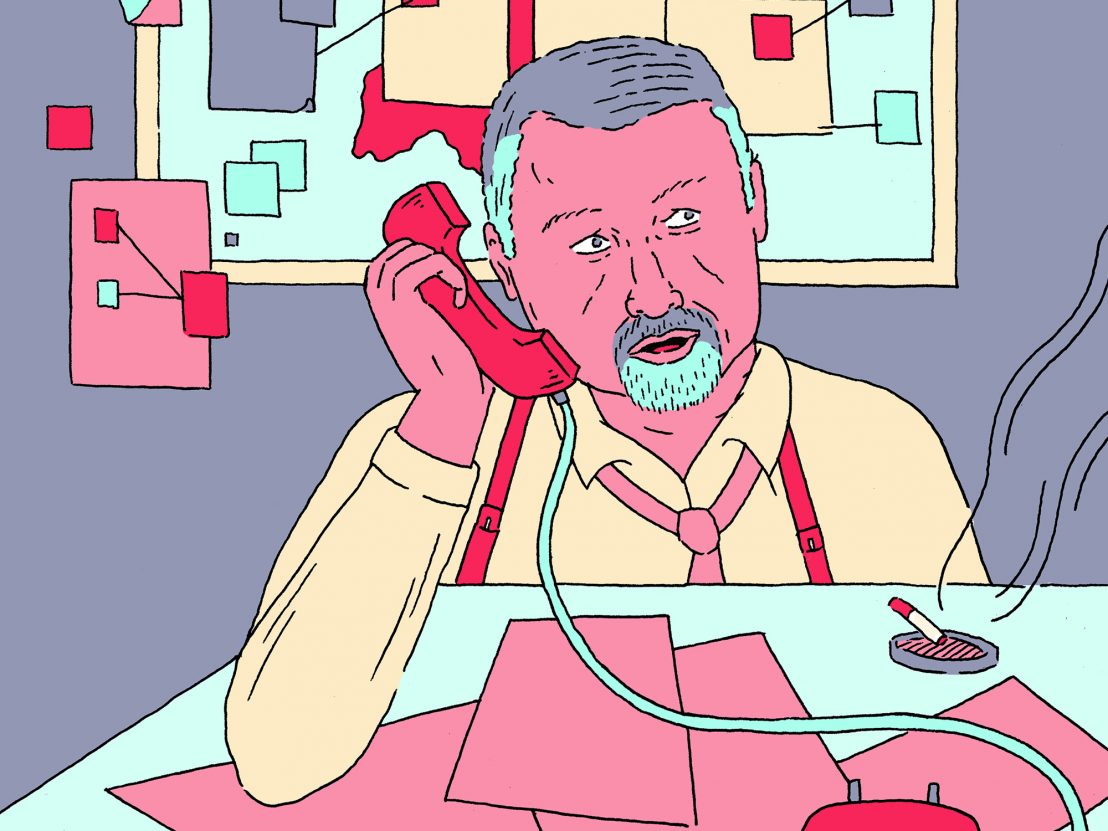
The alchemist behind Fight Club and Zodiac discusses his newest true crime saga, the Netflix Original series MINDHUNTER.
Netflix has come a long way since the launch of its flagship in-house production, House of Cards back in 2013. The first two episodes of that landmark series saw one of American cinema’s most fastidious craftsmen make his first foray into television. Now David Fincher is back and doubling down, helming four episodes of 2017’s most anticipated binge-fest, an adaptation of the memoir by FBI agent John Douglas, the criminal profiler who served as inspiration for Jack Crawford in Thomas Harris’ bestseller, ‘The Silence of the Lambs’. Fincher gave us a call for an epic conversation about all things MINDHUNTER.
LWLies: Was MINDHUNTER a project you developed yourself?
Fincher: Yeah. Let’s see, Charlize Theron called me around 2009-2010. It was definitely before House of Cards. She owned the book and had the idea to develop it as a TV show, so we started talking about what it could be. I’d never done TV. I was like, ‘I don’t know enough about it.’ We developed it together with a writer that she had sort of already hired. I was only kind of tangentially involved, I wasn’t in the driver’s seat and more of the mind that if something can come of this I’ll certainly direct the pilot.
We went down a road where I met with the writer Joe Penhall and laid out the things that I’m not interested in, the most important one being the notion that a fine line separates the FBI agent from the serial killer. I felt that it was well trawled, I felt that it was a literary conceit and really had nothing to do with why I think people are interested in serial killers. I don’t think people are interested in serial killers because they’re so much like them, I think they’re interested in the aberrant because it’s so hard to understand. I really felt that this was an opportunity to reclaim, not the genre, because I hate the idea that serial killer films are a genre, but more the idea that the serial killer is some kind of Wile E Coyote super genius.
What else were you keen to avoid?
I laid out that I wasn’t interested in the minute differences between the hunter and the hunted, and I’m not interested in an A-B storyline. I’m not interested in ‘Here’s what Batman’s up to and here’s what the Joker’s up to.’ I wanted to talk about the late 1970s, post-Civil Rights, post-sexual revolution, post-Watergate and post-Son of Sam, where the FBI has to brace its boots and try to reinvigorate itself in order to become relevant again. They were at a particular lull where they’d been responsible for the house of the SLA burning down, they were in a valley in terms of their public relations. I felt that that was a really interesting time.
At what point did you decide to make it about this fictional character, Holden Ford, removing John Douglas from the narrative?
That was Joe Penhall. Once we’d decided that we weren’t going to use the first script written by the first writer, Charlize suggested Joe. He’d written The Road and she really loved working with him. We pitched him what we were thinking and he went away and came back with what was the real epiphany, which was that we can’t do it with Ressler and Douglas. We need to be able to separate these characters where we need to separate them. We’re not only talking about a time and a place, we had to be able to apportion the characters certain behavioural traits that we needed to dramatise the story that we wanted to tell. Joe’s solution, and I think it was the right one, was that we needed to fictionalise. We can’t get into or deal with who really did what. We’re gonna stay with the people who were interviewed, and we’re gonna talk about and dramatise those interviews, but Joe was the one who said, ‘I can’t be beholden to this book. I need to be able to move to draw the best drama and not be worried about who would get credit for what.’
There are a lot of ideas that need to be transmitted to the audience in terms of what the lead character is trying to do, so that when the first serial killer interview with Ed Kemper comes, they’re effectively asking the same questions of him as the FBI agent. You once said, “The first rule of cinema is that a movie has to teach an audience how to watch it.”
I sent it to a friend of mine who’s a stone-cold genius, just this great screenwriter. I showed him the first two episodes and his comment was really interesting. He said, ‘You’ve done the exact opposite of television, where your character is always the perfect person to solve the dilemma of the show. They may have a problem with alcohol, or may have lost a loved one, but they’re always the perfect person to wrestle with the problem that the show is going to posit.’ He said what we’ve done here is taken somebody who’s in some existential malaise – which is something that Joe and I talked about a lot – and it’s the most difficult thing to dramatise, someone who doesn’t feel like he’s accomplishing what it is he needs to accomplish.
Joe did some really interesting thinking about how we introduce a character and introduce his naiveté. I mean, John Douglas is not a naive guy, Holden is a much more naive character. But through this naiveté we get to experience how Quantico works and what they wanted from him, and how they expected him to behave, how they didn’t consider themselves to be outmoded and outside the vanguard as it relates to criminology. So we got to experience a lot of that stuff in the first hour. That’s not to say that’s the only way to tell a story, but we were looking to do a bit more of a hybrid between a movie and a TV show.
What does that look like to your mind?
I don’t know that the golden age of television is really television as we know it. It’s something that’s grown out of certain expectations, blurring and subverting a lot of those expectations in surprising ways, and I really do feel that what’s interesting about the Netflix model – that they don’t have to worry about capturing an audience on a given night, that they don’t have to worry about cliffhangers – is that the way people experience it is much more like literature. You can set the remote down like you’d set the book down, on your bedside table. It has a different relationship to its audience. The movie business has become about the urgency of Friday to Monday, and network television has become about, ‘From the makers of…’ using the hit show as the introduction to the new show. Then there’s Netflix, which is about, ‘Look, when you get around to it, we’ll be here.’ It’s a different problem, it requires different things of the audience’s time. Ultimately I think it requires a different kind of television.
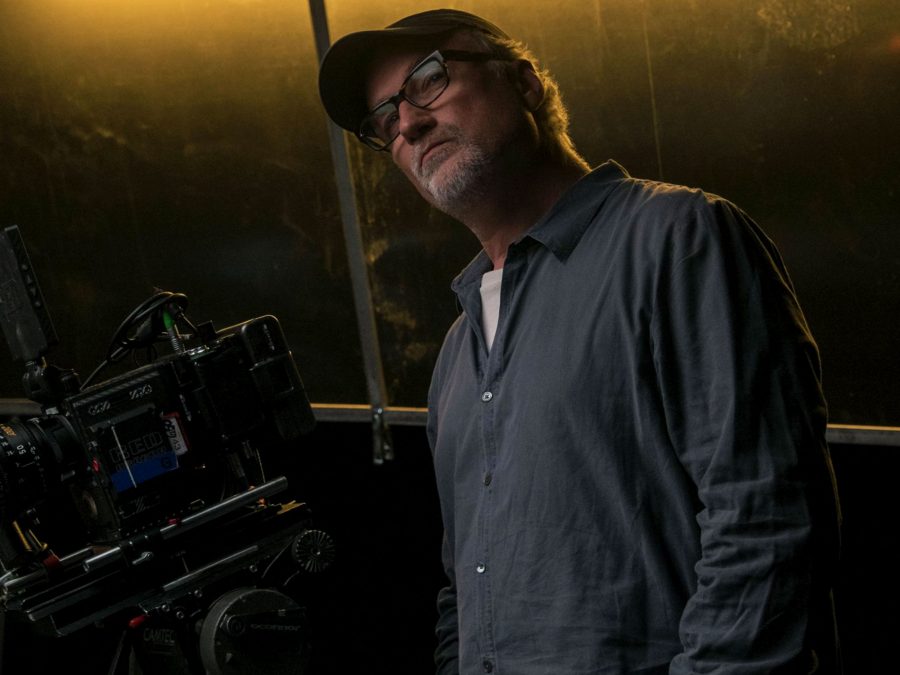
Holden uses these interviews as a means to an end, as the tools to unlock the criminal mind…
I think it’s later that that becomes the case. What he sees is the value of these conversations in illuminating… Look, the FBI was established to chase Baby Face Nelson from one state into another. That’s how it came to be. It was a never about sitting with them and asking, ‘Why did you want to become a bank robber?’ In the Depression, no one really cared what the reasons were behind someone’s impetus. It was pretty fickle, it was monetary gain. It was a case of, ‘I don’t have what’s in this bank, but I have a tommy gun, and I’m gonna take what’s not rightfully mine.’ There was a pretty clear cut motive.
Do you think he knows where all this is heading?
I don’t even think he knows what he’s touched upon, that there’s something to this idea of the unconscious or the subconscious speaking through these rash, explosive, compulsive acts of violence. There was something to the things that Edmund Kemper was doing that only he knew, and ultimately that was the attraction for me, the notion that a monolithic bureaucracy could only inform itself through having some kind of empathy for people who should be beneath our contempt. That in order to have a conversation with someone who is so unlike you that you can’t even imagine it, and who has things that are driving them that you can’t even fathom, you have to have compassion even for your enemy to understand why they hate you and why they do what they do.
I thought that was interesting. I don’t think I’d ever seen that. That was one of the hallmarks of Douglas’ project. He was very good at testing and sparring with these people, but he was also very good at engaging them and pulling them out so we could have a better understanding. What they do is inhuman, but they are human. He offered an empathetic vacuum, a place where you don’t judge them, you simply listen to them. That was not a J Edgar Hoover idea, that was very much sparked by having to change. When David Berkowitz was hunting every night through the boroughs of Manhattan, it was something about these people and these circumstances and this location that spoke to him, and that’s when he pulled the trigger. For whatever reason, they couldn’t get the manacles on him for a year, and he held this entire city in terrified thrall. It was an interesting thing, this idea of a guy in a Mormon suit sitting down to talk to someone who’s entirely unlike him. It was a pivot. It was a change in the bureau, it was a change in criminology and a change in the way that people talked about aberrant behaviour.
You’ve spoken in the past about not liking to be seen to have a ‘style’ of your own, yet you’ve directed the first two episodes of MINDHUNTER, which would presumably look different if, say, Asif Kapadia had directed them. Do the requirements of uniformity throughout the series mean that other directors will have to ‘do a Fincher’ moving forwards?
I hope not. Nothing makes a filmmaker more self-conscious than watching another filmmaker doing an interpretation of what you’ve done. The director of photography was fairly well versed in what the style was. The style is really just let’s not be afraid of conversations. It’s My Dinner with André the Giant. There’s a sequence with Jerry Brudos that Andrew Douglas did that’s just a stainless steel picnic table inside a chain-link cage inside a maximum security concrete bunker that has razor wire over all the windows. The guy comes in and it’s a conversation about cigarettes, whether they can un-manacle him, whether he can fix the guy’s tape recorder. I know that there are filmmakers who, if you presented them with a long scene of two guys over a picnic table would go, ‘Oh my god, where do you go with this?’
When you’re approaching a scene that’s 11 pages of dialogue, is that all shot and cut in your head first?
You’re always shooting coverage, because coverage just means… Look, you can either embrace coverage like an interior house-painter, as in, ‘I just need to get as many coats as I can,’ but starting wide, there are practical implications to taking two cameras and shooting as wide as you can, as a lot of the time you can learn from them. A few takes and a master can just be a case of ‘I gotta have a master’ or it can be, ‘So later when I get into this, are you intending to move here…’ It’s plastic. You don’t want to become a Disneyland animatronic, you want to leave room for inspiration. We did not storyboard, but if you say that you’re a director, I don’t want you to become reliant on close-ups.
I want to see the physicality. I want to see the shoulders of this character. I like the worn nature of what these guys wear. How they walk when their gait can only be two feet. What does that do to you? How bodies express. The slouch of somebody who has all the time in the world and the erect spine of the guy who’s trying to glean something from them, and how the FBI agent plays with his tie or rolls his eyes and is already packing his stuff to leave… All that stuff goes into it, and a lot of television is, ‘Get that Tony Scott close-up.’ We talked about all that stuff.
You’re quite vocal about your loathing of the term ‘auteur’, so much so that you basically gave it to Ed Kemper’s serial killer as a means of describing his “oeuvre”.
My distaste for the term was exactly the intention. Like, what the fuck? What is he talking about? The problem with auteurism is that it presupposes that one person can impress upon 95 people, so clearly, that the manifestation of whatever it is going on in your head can be clearly attributed to them. The reality of moviemaking is, y’know, it’s a rat fuck. Every day is a skirmish, and you might escape every skirmish, but there are injuries and there losses, and there are things that you had 10 meetings about that go off perfectly, and there are things that you’ve had no meetings about that ended up taking eight of the 12 hours in the day because you didn’t think it was going to be so complicated.
“Shooting television is hard. You do a lot of weeping, but it’s also invigorating.”
So the notion that someone calls this perfect, idealised version of the scene… It’s like the jet-propulsion industry, the idea that something is wind-tunnel tested and is gonna go off the way it’s supposed to – it never goes off the way it’s supposed to. My issue with auteurism is, how do you attribute a master plan to a happy accident? There are certain things that you can count on. You have to work at it, and you have to know what it is you’re trying to do and impart that to an army of people who all have their own ideas about what’s important.
Everybody who comes on to a set looks at it from a slightly different standpoint. You can’t say to the third violinist, ‘This is what the totality of the thing should sound like.’ You just need them to get them to do their thing. When you hear it, it either moves you or it doesn’t, so you have to figure if it needs a little bit more of this or that. That’s happening in the rehearsal, it’s happening in the coverage throughout the day. You hone in as you get tighter and tighter and tighter on people, but you’re also getting tighter in terms of time. You’re honing in on one little thing, and then you do the same again in the edit, with the sound effects, with the music, with the colour grading. Suddenly all this stuff comes together, and the notion that anyone could say, ‘This is precisely what it’s going to look like,’ to me is amazing.
But there is a directorial perspective, a subjectivity that is distinctively yours. That isn’t perhaps as distant as Stanley Kubrick, or as immersive as Steven Spielberg, but that’s definitely identifiable and consistent.
And that’s a decision. I love both those filmmakers. I like dispassion because I like what it does to the audience, I like to see things as wide as I possibly can. I don’t want to be in the middle of every transaction. Spielberg’s staging in a lot of ways is about putting you in harm’s way. Jaws and Close Encounters are two of my favourite movies. But I look at the stories I’m interested in telling, or I look at the stories that I have been interested in telling, and I sort of go, ‘There’s no place for that here.’ You pick and choose. The important thing is to know what you intend to impart. It comes from the aesthetic. There are things that you hold dear aesthetically, there are things that you hold dear behaviourally, there are ways that a scene unfolds that feel realistic to you. If you’re responsible for how it’s all going to come off and for how it’s all going to come together, there’s no way that you can’t inform that. The notion that someone is going to direct a film and not reveal what it is they like about cinema, or how they prefer things to be revealed to them or the audience, it’s impossible. You’re doomed to find your worth.
I recently spoke to Steven Soderbergh about staging and the implications of film grammar, and he brought up you and Spielberg, describing you as savants. Do you think that’s a fair assessment?
Y’know, it’s trial and error. Anyone who does this job has to work at it. When you look at the minimalism of Logan Lucky, you could mistake it for the Coen brothers in terms of its wide angle wit. It’s diabolically complicated. It is not easy to do that. Even that bit in the trailer, when Channing Tatum’s been fired and he throws his hard hard, and the guy in the foreground is like, ‘What just happened?’ It’s just stunning. It’s not easy shit to do.
What are the practical differences between film and TV? Do you have the luxury of rehearsal?
No, you’ve got a show to put on. It’s Mickey Rooney-Judy Garland, ‘I have to put on a show!’ That’s the pressure of it. It’s also kind of the beauty of it. It’s a circus. Here’s the company and the script is as good as it can be by Tuesday because that’s the day those nine pages are gonna get shot.
So no 99 takes?
I’ve only shot 99 takes a couple of times! When you have six months to prep something that’s going to end up being two hours long, on which you’ve spent a year figuring out the tech and another six months getting everyone prepared for it… You can tell people why all these moments link and why you’re expecting XYZ, so there are much fewer surprises. There are more surprises in television. You have to finish 10 hours of material in the same time you would normally shoot your film, not edit, just the shooting part. You don’t get to vivisection it in the same way. Actors playing roles are constantly revealing new strengths to you, and weaknesses. It’s hard. But one of the lovely things about working in television is that you’re meeting all these actors that may have done a lot or a little, and you have to rapidly interface with people you’ve never met.
Is working in that way liberating?
You do a lot of weeping, but it’s also invigorating. I know that with more prep and with more pre-production meetings, I can get people to understand what my intentions are. Often with a television show you get one conversation in the hallway by the coffee machine. You may not get an idea exactly where you want it, but you’re able to move it over to another scene and it’ll still be part and parcel of the tapestry, you just can’t get it specific. It wasn’t what you intended. So yeah, there were things that made me miserable, but there were also things that were happy accidents.
How is the studio blockbuster sequel business treating you these days?
World War Z? We’re trying. A lot of stones have been laid. We’re just deconstructing it right now against the mythology that exists to see where we can go.
MINDHUNTER is available to stream on Netflix now.
Published 12 Nov 2017
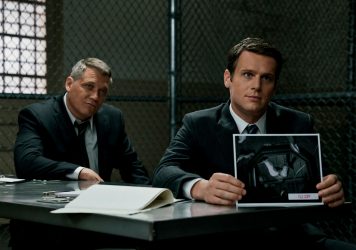
Netflix’s newest crime drama series is the culmination of a career-long obsession for the director.
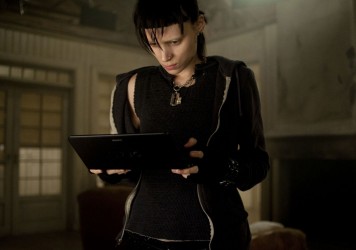
By Simran Hans
A look beyond the dominant male characters that inhabit the Gone Girl director’s cinema.
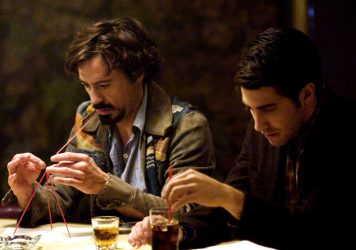
By Tim Cooke
The director’s true-crime chiller is as tricky and compelling as ever.